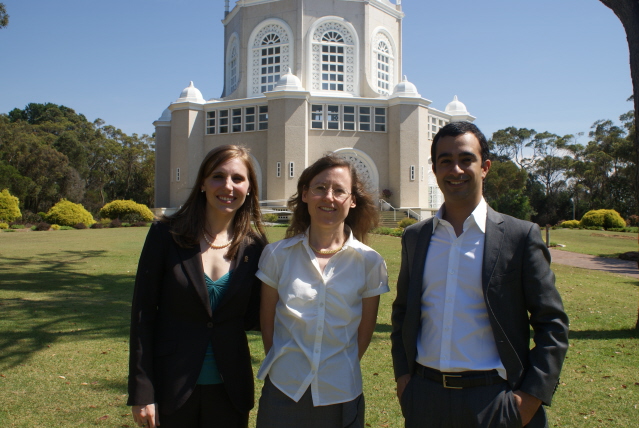
Establishing gender equality leads to better economic outcomes, increased global stability and improved decision-making, according to two Australian Baha’is who attended a major United Nations event in New York this month.
Kathryn Khamsi and Omeed Rameshni spoke about the event when they addressed an International Women’s Day function held at the information centre of the Baha’i Temple in Sydney on Sunday 28 March.
They were the Australian Baha’i Community’s delegates to the United Nations Commission on the Status of Women, the principal global policy-making body dedicated to gender equality.
“The Commission stressed that gender equality is a solution to many other problems like poverty, climate change and geopolitical stability,” said Ms Khamsi, a public policy professional.
“Advancing the status of women and girls and upholding their rights benefits us all,” Ms Khamsi said.
Challenges
There are still many challenges in achieving equality worldwide, Ms Khamsi said.
“The picture has improved but there’s a lot more to be done,” she said.
Ms Khamsi identified the following as major challenges to gender justice:
- violence and trafficking of women and girls
- lack of access to and completion of primary and higher education
- poverty and limited access to primary healthcare
“Shockingly, it is estimated that each year more than half a million women – roughly one woman every minute – die as a result of pregnancy complications and childbirth,” she said.
“Many of these women and their infants could be saved if they had access to basic health care services.”
Ms Khamsi said there was a positive development emerging as women in poverty gain greater access to savings and microcredit mechanisms.
“Investing in women and girls and providing them with economic opportunities not only transforms their individual lives, but also the lives of those around them, as women bring the benefits of wealth back to their community,” Ms Khamsi said.
There is also an increase in the number of women occupying political positions in countries such as Rwanda, she said.
Men and boys
Mr Rameshni, a management consultant, said the greatest barrier to achieving equality is our behaviours, attitudes and cultures.
Addressing the men in the audience, Mr Rameshni stressed the importance of involving men and boys in achieving equality.
“Men are a beneficiary in gender equality and a part of the solution,” he said.
“It’s not a zero-sum game – men don’t have something to lose, but everything to gain.
“We should all reflect on this issue and bring it to our lives, consciously and creatively, on a daily basis.”
Bridging the gap
Ms Khamsi said the Australian Baha’i community is committed to bridging the gender gap and contributing to a world where everyone can live up to their potential.
“At the local level, the Baha’i community works to bring concepts of equality to neighbourhoods through junior youth empowerment programs and children’s classes for moral development,” she said.
